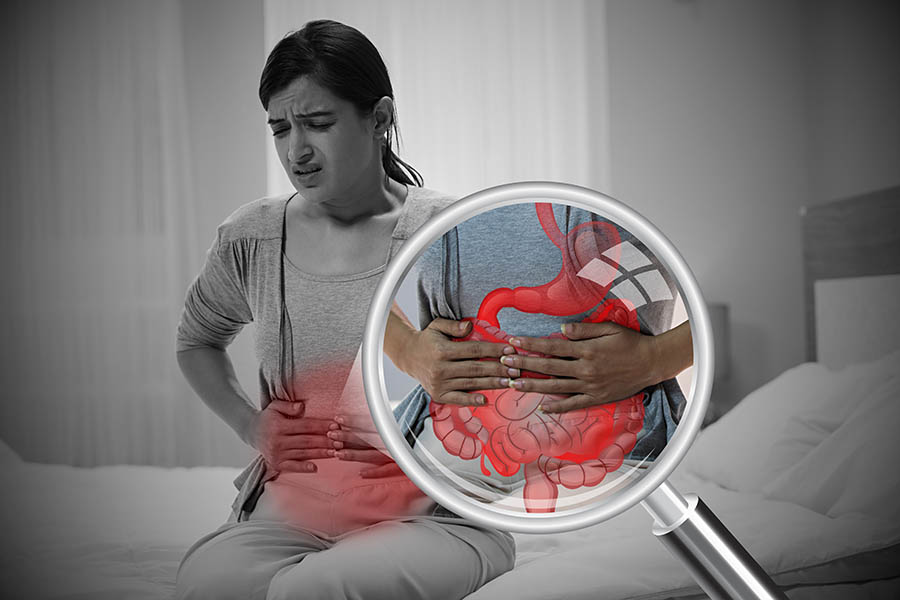Are you feeling sluggish, nauseous, and have an upset stomach? The dreaded stomach bug is never a pleasant experience. While it’s easy to blame the latest restaurant visit or lack of healthy eating habits for your symptoms, there are several reasons why you may be experiencing this unpleasantness. In this blog post, we’re going to explore eight common causes behind the stomach bug and what you can do to prevent it from happening in the future. Get ready to say goodbye to your tummy troubles!
Norovirus
Noroviruses are a group of viruses that cause gastroenteritis, an inflammation of the stomach and intestines. The most common symptoms of norovirus infection are vomiting and diarrhea. Other symptoms can include nausea, abdominal cramps, headache, fever, and body aches. Noroviruses are highly contagious and can be spread through contact with an infected person or contaminated surfaces. To prevent norovirus infection, practice good hand hygiene and cleanliness.
Rotavirus
1. Rotavirus is a highly contagious virus that can cause severe diarrhea, vomiting, and dehydration.
2. Rotavirus is the most common cause of severe gastroenteritis in young children.
3. The virus is typically spread through contact with contaminated surfaces or objects, or by contact with an infected person.
4. Symptoms of rotavirus include watery diarrhea, vomiting, fever, and abdominal pain.
5. Treatment for rotavirus includes aggressive hydration and supportive care. In severe cases, hospitalization may be necessary.
Food poisoning
1. Food poisoning:
Food poisoning is a common and potentially serious illness that can occur when you eat contaminated food. Symptoms of food poisoning can range from mild to severe, and can include nausea, vomiting, diarrhea, abdominal pain, headaches, and fever. While most cases of food poisoning are mild and resolve on their own, some can lead to more serious illnesses, such as dehydration or even death.
The best way to prevent food poisoning is to practice safe food handling and preparation techniques. This includes washing your hands thoroughly after handling raw meat or poultry, avoiding cross contamination between raw and cooked foods, cooking food to the proper temperature, and refrigerating leftovers promptly. If you suspect you have contracted food poisoning, contact your healthcare provider immediately.
Stomach flu
When you have the stomach bug, it’s usually accompanied by diarrhea, vomiting, and nausea. You may also experience a fever, chills, and body aches. The stomach bug is usually caused by a virus, such as the norovirus, that affects your gastrointestinal tract. The virus is typically spread through contaminated food or water or by contact with an infected person. There is no specific treatment for the stomach bug other than letting it run its course and drinking plenty of fluids to prevent dehydration. However, there are some things you can do to help ease your symptoms:
– Get plenty of rest
– Drink clear fluids like water, chicken broth, or ginger ale (avoid caffeine and alcohol)
– Eat small meals slowly throughout the day rather than large meals all at once
– Avoid dairy products, greasy or fried foods, spicy foods, and citrus fruits or juices
– If you’re vomiting, stick to clear fluids for the first 24 hours and then gradually add in simple bland foods like toast or crackers
Allergies
There are a few different reasons why you might have the stomach bug, but one of the most common is allergies. Allergies can cause a number of digestive problems, including nausea, vomiting, and diarrhea. If you’re allergic to something in your food, your body will try to get rid of it by any means necessary. This can result in some pretty unpleasant symptoms.
Celiac disease
There are a few reasons why you may have the stomach bug, but one of the most common is celiac disease. This is an autoimmune disorder that affects the digestive system, and can cause a wide range of symptoms including nausea, vomiting, diarrhea, abdominal pain, and more. If you have celiac disease, your body is unable to properly digest gluten, which is found in wheat, barley, and rye. This can lead to inflammation and damage to the lining of the intestine, and can eventually lead to nutrient malabsorption and other serious health problems. There is no cure for celiac disease, but following a strict gluten-free diet can help to control symptoms and prevent further damage to the intestine.
IBS
There are many possible reasons for why you might have the stomach bug, but one common culprit is irritable bowel syndrome (IBS). IBS is a disorder that affects the large intestine and can cause a variety of symptoms like abdominal pain, bloating, diarrhea, and constipation. If you think you might have IBS, it’s important to see a doctor so they can rule out other potential causes of your symptoms and develop a treatment plan that’s right for you.
GERD
If you’re experiencing symptoms like heartburn, indigestion, or a sour taste in your mouth, it’s possible that you have GERD. GERD is a condition that occurs when stomach acid or other contents of the stomach flow back up into the esophagus. This can cause irritation and damage to the lining of the esophagus. GERD is a common condition, and it affects people of all ages. There are a number of things that can contribute to GERD, including diet, lifestyle, and medical conditions. Treatment for GERD often includes making lifestyle changes, such as avoiding trigger foods and eating smaller meals more frequently. Medications may also be used to reduce stomach acid production or help the muscles in the esophagus work better.




